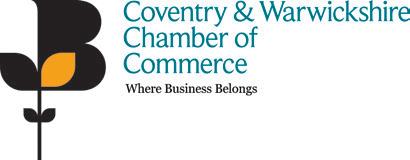WEST MIDLANDS QUARTERLY ECONOMIC SNAPSHOT


Q1 2024






Q1 2024



The export landscape across the West Midlands remains challenging for businesses and growth in this area continues to lag behind domestic sales and orders, despite some early signs of recovery in international trade flows. The turn of the new year saw the export balance score increase by two points to 52 in Q1 2024, which is 4 points higher than this time last year and remains in positive territory, but is indicative of only very weak growth. More granular region wide QES data shows that almost as many businesses citing an increase in export activity are reporting a decrease in overseas business (24% reporting an increase and 21% reporting a decrease). Export activity gained the most momentum in the Black Country this quarter, with 29% reporting an increase in Q1, closely followed by Greater Birmingham where 26% saw an uptick in overseas sales. Businesses in Coventry and Warwickshire appear to have faced the most challenges in increasing their export sales volumes, with only 13% reporting having been successful in doing so.
As Chambers of Commerce, we are on hand with expert advisers and networks to support businesses with the multifaceted challenges and opportunities faced in the current climate. The quarterly economic surveys mean that we can stay on the pulse with rapidly changing business trends and communicate the results to key stakeholders, and our international trade documentation teams share a wealth of expertise to help facilitate export trade for our members as smoothly and efficiently as possible.

The economy slipped into technical recession at the end of 2023 and, yet, the survey showed that there was still a resilience and quiet confidence among businesses across the West Midlands. That confidence has since been borne out as the economy grew more quickly than anticipated at the start of the year.
Our region has shown its resilience, its inventiveness and its adaptability over many years now and that is why the West Midlands has performed so strongly as an economy.
However, with a General Election now on the horizon it is important that decision makers work hard to fix many of the issues that are holding back growth – such as more land for employment, closing the skills gap and support to make the transition to net zero. We will continue to speak up on those issues and also help to find solutions to them ahead of the election and, indeed, afterwards when a new Government is formed.

Recruitment trends are progressing slowly downwards, which is an excellent sign. The cooling labour market is a positive for employers, although challenges and pressures remain. The available talent pool remains too small, and increased wage costs and interest rates continue to add to the pressures on businesses.
More needs to be done to expand the workforce, and there are projects underway to help with this such as the Local Skills Improvement Plans. Funding is now underway for these projects and we look forward to seeing the results. As the general election approaches, it is hoped that politicians will do more to break down barriers to the workplace and return people to the workforce.
An increase in the skilled workforce available will play a large part in increasing local and national economic growth.
In Q1 2024, 61% of firms experienced recruitment challenges, having decreased from 69% in Q4 2023, marking the second consecutive quarterly decrease since a figure of 78% was recorded in Q3 2023 which was the highest for many years.
Recruitment difficulties were seen most frequently in Coventry and Warwickshire, where 75% of firms struggled to attract staff. 61% struggled to recruit in Greater Birmingham and 50% in the Black Country.
57% of services firms in the region faced recruitment difficulties, an 11-point decrease compared to Q4.
The difficulties for manufacturing firms have eased slightly, falling from 76% in Q4 to 74% in Q1, although this figure remains high and is 13 percentage points above the regional average.
Between December 2023 and February 2024, the employment rate in the West Midlands (for those aged 16-64) decreased by 0.7% percentage points on the previous quarter to 73.8%. The unemployment rate increased by 0.9% to 4.9% and the economic inactivity rate remained the stable at 22.3%
Similar changes were seen in national figures: across the UK the employment rate decreased by 0.5 percentage points on the quarter to 74.5%, the unemployment rate increased by 0.3% to 4.2% and the economic inactivity rate increased by 0.3 percentage points to 22.2%.
Annual growth in regular earnings (excluding bonuses) between December 2023 and February 2024 was 6.0%, and annual growth in employees’ average total earnings (including bonuses) was 5.6%
Annual growth in real terms (adjusted for inflation using the Consumer Prices Index including owner occupiers’ housing costs (CPIH)) for regular pay was 1.9%, and for total pay was 1.6%
The manufacturing sector saw the largest annual regular growth rate at 6.9%, closely followed by the finance and business services sector at 6.8%
The balance score for export sales across the region in Q1 has increased by 2 points to 52 and is 3 points higher than this time last year.
24% of businesses across the region reported an increase in export sales (an increase of 2 percentage points on Q4 but still much lower than the record-breaking figure of 35% recorded in Q3).
55% reported that export sales had remained constant (having decreased by 1 percentage point since Q4).
of firms reported a decrease in sales (down one point from 22%).
As for export orders, 28% have seen an increase over the past quarter, 51% report that they have remained the same, and 21% have recorded a decrease.
of manufacturers saw an increase in their export sales, in contrast to 23% of those in the service sector.
The total value of exported goods from the West Midlands in Q4 2023 totalled £8.2 billion, a decrease in comparison to the £9.4 billion recorded in Q3 2023.
The West Midlands exported a total of £4.0 billion worth of goods to the EU, and £5.3 billion to destinations outside of the EU.
The UK’s total exports of goods was worth £93.2 billion in Q4 2023, in comparison to £88.0 billion in Q3.
The total value of EU exports in Q4 2023 was £46.1 billion compared to £44.5 billion in Q3. The total value of non-EU exports decreased from £47.0 billion to £43.5 billion during the same period.
The balance score for price pressures fell by 2 points to 72 this quarter
51% of manufacturers across the region expect their prices to increase over the next 3 months, an increase from 41% recorded in Q4, whilst 44% of service firms anticipate increasing price pressures, down from 51% in Q3.
In Greater Birmingham, 46% of businesses are expecting an increase in price pressures, followed by 44% in the Black Country, and 40% in Coventry and Warwickshire.
The overall balance score for cashflow in Q1 was 55, an increase of 4 points compared to the previous quarter. This was based on:
24% seeing their cashflow increase over the past three months
61% experiencing constancy in cashflow
23% of manufacturing firms have seen their cashflow decrease this quarter, in contrast to 31% in Q4. On the other hand, the number of services firms reporting an increase in cashflow sits at 25%, which is one percentage point higher than last quarter.
The balance score for manufacturing firms’ cashflow has decreased by 2 points to 51 and has remained constant at 50 for services firms.
15% reporting a decrease in cashflow
Across the region:
24% of firms reported an increase in investment plans for capital expenditure (capex), an decrease of 5 percentage points compared to the previous quarter. 61% report maintaining the same level of capex investment as in Q4, while 15% have revised their investment plans downwards.
24% of firms in Greater Birmingham increased their capex investment, 21% in Coventry and Warwickshire and 12% in the Black Country.
The balance score for capital expenditure investment is 56 for manufacturers (an increase of 2 points) and 54 for services firms (an increase of 4 points).
The Consumer Prices Index including owner occupiers’ housing costs (CPIH) rose by 3.8% in the 12 months to March 2024, unchanged from February. On a monthly basis, CPIH rose by 0.6% in March 2024, compared with a rise of 0.7% in March 2023.
The Consumer Prices Index (CPI) rose by 3.2% in the 12 months to March 2024, down from 3.4% in February. On a monthly basis, CPI rose by 0.6% in March 2024, compared with a rise of 0.8% in March 2023.
The largest downward contribution to the monthly change in both CPIH and CPI annual rates came from food, with prices rising by less than a year ago, while the largest, partially offsetting, upward contribution came from motor fuels, with prices rising this year but falling a year ago.
UK business investment increased by 0.9% in Quarter 1 (Jan to Mar) 2024 and is 0.6% below where it was for the same quarter a year ago.
The collective balance score for profitability projections is 66, a decrease of 1 point on last quarter. This figure comes from:
50% expecting an increase in profits over the next 12 months (a decrease of 1 percentage point compared to Q4)
29% expecting profits to remain constant (a 4-percentage point decrease compared to Q4)
21% expected profits to decrease (a 3-percentage point increase compared to Q4)
The balance score for turnover projections increased by two points to 75. This was based on 60% of companies reporting an increase in expected turnover, 29% expecting constancy and 11% anticipating a decrease.
UK gross domestic product (GDP) is estimated to have increased by 0.6% in Quarter 1 (Jan to Mar) 2024, following declines of 0.3% in Quarter 4 (Oct to Dec) and 0.1% in Quarter 3 (July to Sept) 2023.
In output terms, services grew by 0.7% on the quarter with widespread growth across the sector; elsewhere the production sector grew by 0.8% while the construction sector fell by 0.9%
In expenditure terms, there were increases in the volume of net trade, household spending and government spending, partially offset by falls in gross capital formation.
The West Midlands Quarterly Economic Snapshot offers an up-to-date picture of the performance of the business community in the WMCA area. It is the most comprehensive, regular report of its kind in the region. Both the national and regional figures are informed by official statistics from bodies such as the Office for National Statistics, HIS Markit and the Chartered Institute of Procurement and Supply. WMCA area data is also gathered from quarterly economic surveys conducted by the Greater Birmingham Chambers of Commerce, Black Country Chamber of Commerce, and Coventry and Warwickshire Chamber of Commerce. The surveying period for the Q1 Quarterly Economic Snapshot took place between 12th February and 8th March.
The Quarterly Economic Surveys consist of information gathered from local businesses on key indicators such as sales, exports, recruitment plans and turnover projections. In total, 457 businesses across the West Midlands completed the Quarterly Economic Survey with 81% of respondents operating in the services sector and 19% operating in the manufacturing sector. Percentage balance figures are determined according to business responses to the indicators: an increase (multiplied by 1), remain constant (multiplied by 0.5), decrease (multiplied by 0). A score of over 50 is indicative of a growth sentiment. Note that figures may not always total exactly due to rounding differences.





The Greater Birmingham Chambers of Commerce (GBCC) is here to connect, support and grow local businesses. Accredited by the British Chambers, we have acted as the voice of local businesses since 1813.
GET IN TOUCH
W: www.greaterbirminghamchambers.com
E: policy@birmingham-chamber.com
T: @grbhamchambers

The Black Country Chamber of Commerce is a membership organisation that provides support to businesses throughout Dudley, Sandwell, Walsall and Wolverhampton. Black Country Chamber provide help, advice and a range of services.
W: www.blackcountrychamber.co.uk
E: website@blackcountrychamber.co.uk
T: @BCCCmembers

The Coventry & Warwickshire Chamber of Commerce is a business membership organisation with five branches across the region – Rugby, Coventry, Mid, North and South Warwickshire.
W: www.cw-chamber.co.uk
E: info@cw-chamber.co.uk
T: @CWCC
For more information on this report, please contact Gemma Dilkes at g.dilkes@birmingham-chamber.com